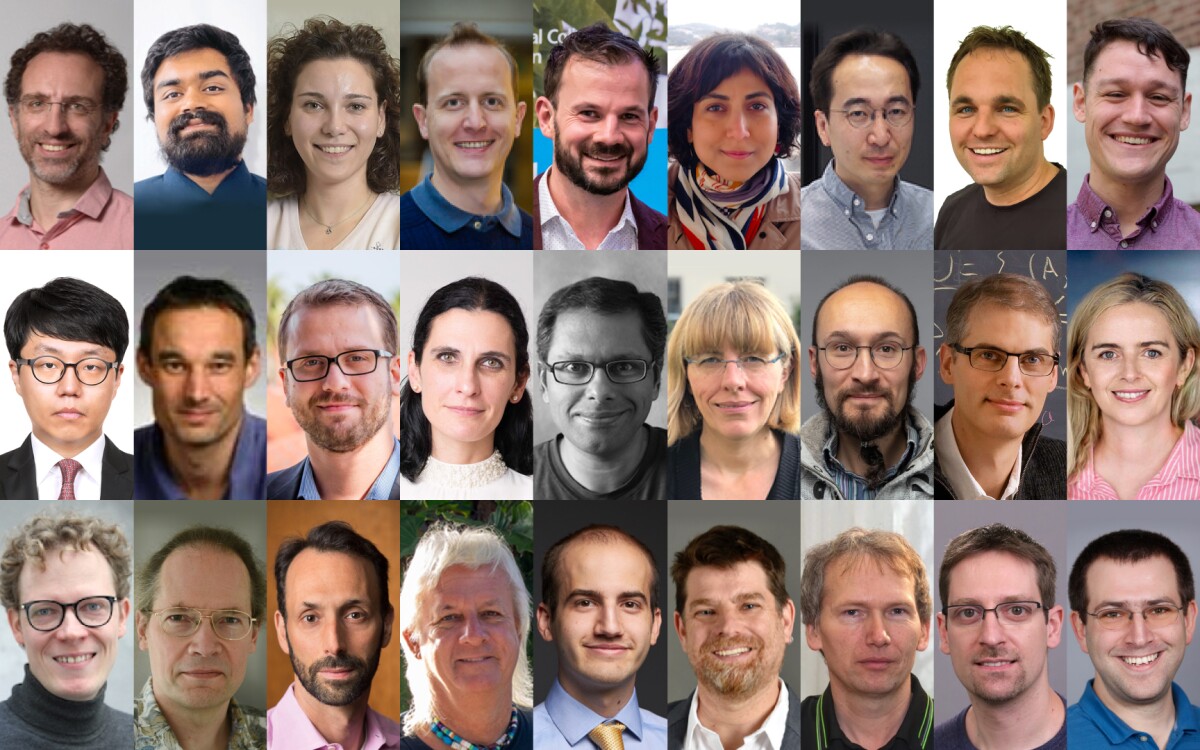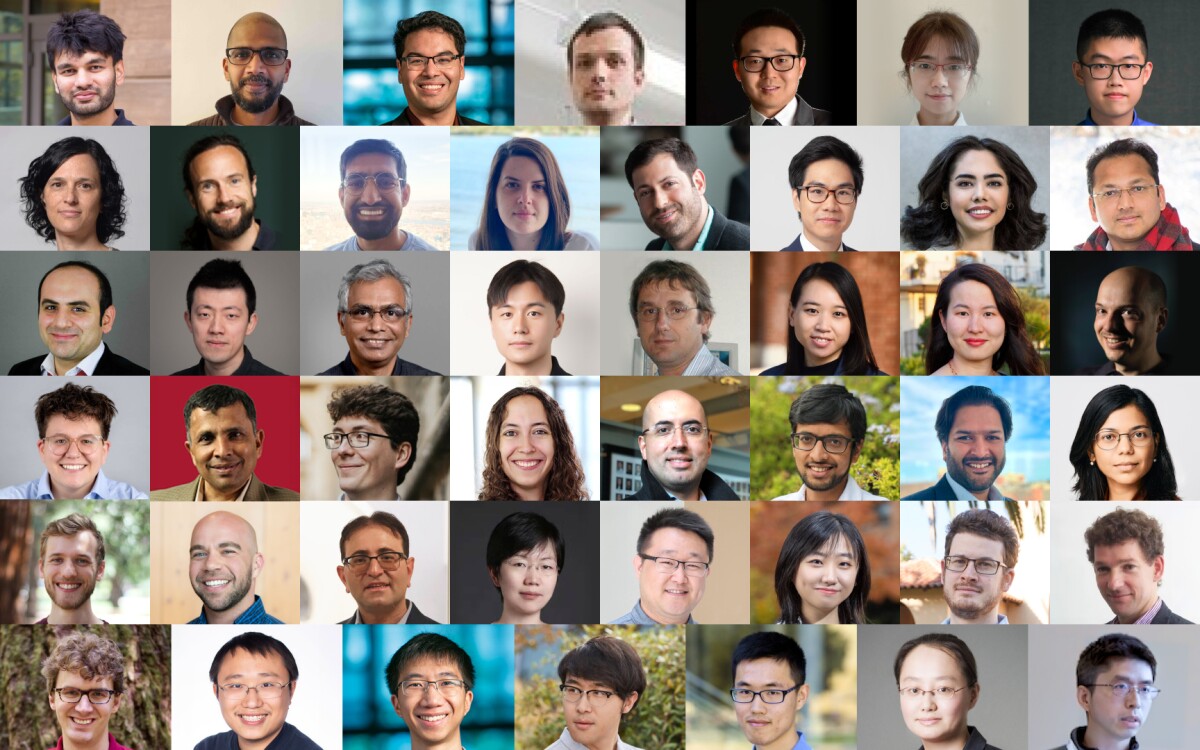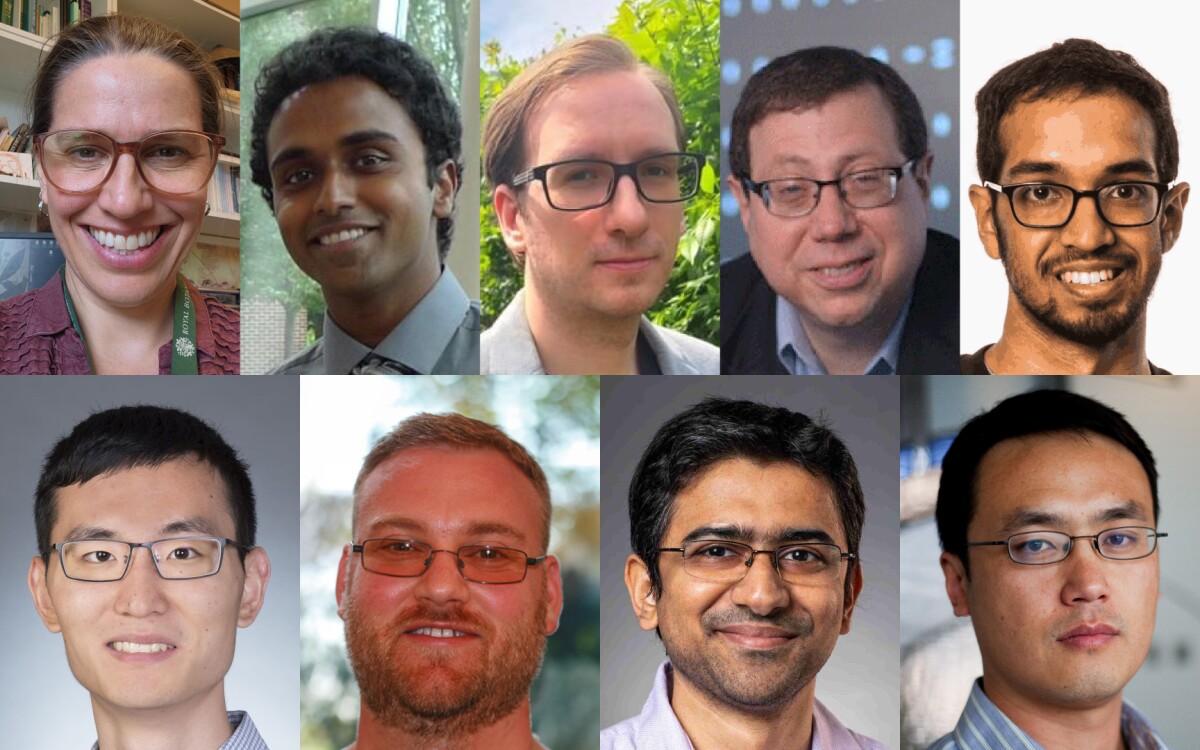Amazon Research Awards (ARA) provides unrestricted funds and AWS Promotional Credits to academic researchers investigating various research topics in multiple disciplines. This cycle, ARA received many excellent research proposals from across the world and today is publicly announcing 105 award recipients who represent 51 universities in 15 countries.
This announcement includes awards funded under six call for proposals during the fall 2023 cycle: AI for Information Security, Automated Reasoning, AWS AI, AWS Cryptography and Privacy, AWS Database Services, and Sustainability. Proposals were reviewed for the quality of their scientific content and their potential to impact both the research community and society.
Additionally, Amazon encourages the publication of research results, presentations of research at Amazon offices worldwide, and the release of related code under open-source licenses.
Recipients have access to more than 300 Amazon public datasets and can utilize AWS AI/ML services and tools through their AWS Promotional Credits. Recipients also are assigned an Amazon research contact who offers consultation and advice, along with opportunities to participate in Amazon events and training sessions.
“We received a fantastic response to the cryptography and privacy engineering’s call for proposals. This was the first time we offered ARAs for cryptography and privacy, and the response far exceeded our expectations, in terms of both the number and quality of the proposals,” said Rod Chapman, senior principal applied scientist with AWS Cryptography. “Advanced cryptography plays a crucial role in building trust with our customers and regulators, especially in emerging domains such as cryptographic computing, generative AI, and privacy-preserving applications. We look forward to working with the new principal investigators to bring ever more impactful cryptographic technologies to fruition.”
“Given that data is central to Amazon’s core businesses, I am excited by this opportunity to collaborate with universities on cutting-edge technologies for modern database systems,” said Doug Terry, vice president and distinguished scientist in AWS Database and AI Leadership. “These Amazon Research Awards allow us to support projects that have the potential for substantial advancement in important areas from correctness testing of SQL queries to new data models for generative AI applications.”
ARA funds proposals throughout the year in a variety of research areas. Applicants are encouraged to visit the ARA call for proposals page for more information or send an email to be notified of future open calls.
The tables below list, in alphabetical order by last name, fall 2023 cycle call-for-proposal recipients, sorted by research area.
AI for Information Security

Recipient |
University |
Research title |
Purdue University |
Causal Anomaly Detection from Non-stationary Time-series in the Cloud |
|
Michigan State University |
Harnessing the Power of Weakly-Supervised Graph Representation Learning for Cybersecurity |
|
North Carolina State University |
Harnessing the Power of Weakly-Supervised Graph Representation Learning for Cybersecurity |
|
University of British Columbia |
Building Robust Provenance-based Intrusion Detection |
|
Stony Brook University |
SafeTrans: AI-assisted Transcompilation to Memory-safe Languages |
Automated Reasoning

Recipient |
University |
Research title |
University of Freiburg |
From Mavericks to Teamplayers: Fostering Solver Cooperation in Distributed SAT Solving |
|
Universidad de Buenos Aires |
Abstractions for Validating Distributed Protocol Reference Implementations |
|
University of Illinois Urbana-Champaign |
Automating Privacy Compliance |
|
TU Wien |
Testing Dafny for Unsoundness and Brittleness Bugs |
|
University of Waterloo |
Optional Type Systems for Model-Implementation Consistency |
|
Imperial College London |
Validating Compilers for the Dafny Verified Programming Language |
|
University of Toronto |
Better Predictability in Dynamic Data Race Detection |
|
University Of California, San Diego |
Proof Optimization and Generalization in dReal |
|
University Of Cambridge |
Correct and High-Performance Domain-Specific Compilation with Lean and MLIR |
|
University Of Pennsylvania |
TYCHE: An IDE for Property-Based Testing |
|
Korea Advanced Institute Of Science and Technology - KAIST |
Generative Translation Validation for JIT Compiler in the V8 JavaScript Engine |
|
Massachusetts Institute of Technology |
Flotilla: Compositional Formal Verification of Liveness of Distributed Systems Implementations |
|
University of Washington - Seattle |
Privacy-Conscious Failure Reproduction for Root Cause Diagnosis in Large-Scale Distributed Systems |
|
TU Wien |
QuAT: Quantifiers with Arithmetic Theories are Friends with Benefits |
|
Brown University |
Paralegal: Scalable Tooling to Find Privacy Bugs in Application Code |
|
Carnegie Mellon University |
Proving the Absence of Timing Side Channels in Cryptographic Applications |
|
Aarhus University |
Validating Isolation of Virtual Machines in the Cloud |
|
University Of Pennsylvania |
TYCHE: An IDE for Property-Based Testing |
|
Yale University |
Democratizing the Law - Using LLMs and Automated Reasoning for Legal Reasoning |
|
Brown University |
Paralegal: Scalable Tooling to Find Privacy Bugs in Application Code |
|
University Of Cambridge |
The Foundations of Cloud Virtual-machine Isolation |
|
Yale University |
Democratizing the Law - Using LLMs and Automated Reasoning for Legal Reasoning |
|
University Of Miami |
Automated Theorem Proving Community Infrastructure in the AWS Cloud |
|
New York University |
Asynchronous Couplings for Probabilistic Relational Reasoning in Dafny |
|
Universidad de Buenos Aires |
Abstractions for Validating Distributed Protocol Reference Implementations |
|
Czech Technical University |
Learning Based Synthesis Meets Learning Guided Reasoning |
|
New York University |
Automating Privacy Compliance |
|
Massachusetts Institute of Technology |
Flotilla: Compositional Formal Verification of Liveness of Distributed Systems Implementations |
AWS AI

Recipient |
University |
Research title |
Massachusetts Institute Of Technology |
Adapting Foundation Models without Finetuning |
|
Stony Brook University |
An API Sandbox for Complex Tasks on Common Applications |
|
University Of Pennsylvania |
Uncertainty Quantification for Trustworthy Language Generation |
|
Columbia University |
Do You Speak EMG? Generative Pre-training on Electromyographic Signals for Controlling a Rehabilitation Robot after Stroke |
|
University of Connecticut |
Graph of Thought: Boosting Logical Reasoning in Large Language Models |
|
University Of California, San Diego |
A Hollistic Compiler and Runtime System for Efficient and Scalable LLM Serving |
|
University Of Texas At Dallas |
Process-guided Fine-tuning for Answering Complex Questions |
|
University of Buenos Aires - CONICET |
Efficient Adaptation of Generative Language Models through Unsupervised Calibration |
|
University Of Oxford |
Compute-only Scaling of Large Language Models |
|
Cornell University |
Recommendation systems in high-stakes settings |
|
California Institute Of Technology |
Towards a 3D Foundation Model: Recognize and Reconstruct Anything |
|
University of Maryland |
Building Safer Diffusion Models |
|
University of California, Los Angeles |
Personalizing Multimodal Generative Models via In-Context Preference Modeling |
|
Carnegie Mellon University |
Scaling the Next Generation of Foundation Model Architectures |
|
Concordia University |
Toward Auto-Populating Synoptic Reports in Diagnostic Pathology |
|
Delft University Of Technology |
Understanding and Regulating Memorization in Large Language Models for Code |
|
Harvard University |
Benchmarking the Safety of Generative AI Models with Data-centric AI Challenges |
|
University of Southern California |
Reliable AI for Generation of Medical Reports from MRI Scans |
|
University Of Birmingham |
PCo3D: Physically Plausible Controllable 3D Generative Models |
|
Arizona State University |
Understanding and Leveraging Planning, Reasoning & Self-Critiquing Capabilities of Large Language Models |
|
University Of Wisconsin–Madison |
Information and Coding Theory-Based Framework for Prompt Engineering |
|
University Of Birmingham |
PCo3D: Physically Plausible Controllable 3D Generative Models |
|
Johns Hopkins University |
(Multi-)Calibrated Active Learning under Subpopulation Shift |
|
Princeton University |
From Predictions to Positive Impact: Foundations of Responsible AI in Social Systems |
|
University Of California, Berkeley |
Mathematical Foundations and Physical Principles of Foundation Models and Generative AI |
|
National Centre for Scientific Research (CNRS) |
Efficient Adaptation of Generative Language Models through Unsupervised Calibration |
|
Massachusetts Institute Of Technology |
Responsible AI through User Incentive-Awareness |
|
Carnegie Mellon University |
Text and Speech Large Language Models |
|
University Of Oxford |
Viewset Diffusion for Probabilistic 3D Reconstruction |
|
Princeton University |
Diffusion models: Generative models beyond data generation |
|
University Of Southern California |
Debiasing ML-based Decision Making using Multicalibration |
|
University Of Maryland |
Audio-conditioned Diffusion Models for Generating Lip-synchronized Videos |
|
Cornell University |
Accelerating collective communication for distributed ML |
|
Massachusetts Institute Of Technology |
2D and 3D Animation via Image-Conditional Generative Flow Models |
|
Massachusetts Institute Of Technology |
Lightweight Algorithms for Generative AI |
|
University of Southern California |
Reliable AI for Generation of Medical Reports from MRI Scans |
|
Delft University of Technology |
Φ-Generative Medical Imaging by Physics and AI (PhAI) |
|
University Of Texas At Dallas |
Integrating Visual Alignment and Text Interaction for Multi-modal Audio Content Generation |
|
Carnegie Mellon University |
Generating Deployable Models from Natural Language Instructions through Adaptive Data Curation |
|
Eth Zurich |
Can Technology Protect us from Generative AI? |
|
Delft University Of Technology |
Understanding and Regulating Memorization in Large Language Models for Code |
|
University Of Oxford |
Viewset Diffusion for Probabilistic 3D Reconstruction |
|
Columbia University |
Viper: Visual Inference via Python Execution for Reasoning |
|
University of California, San Diego |
Generating Compositional 3D Scenes and Embodied Tasks with Large Language Models |
|
University Of Pennsylvania |
Adversarial Manipulation of Prompting Interfaces |
|
New York University |
Image Sculpting: Precise Image Generation and Editing with Interactive Geometry Control |
|
Yale University |
Diff-H: Hyperbolic Text-to-Image Diffusion Generative Model |
|
Harvard University |
Troubleshooting Distributed Training Systems |
|
Cornell University |
A Unified Approach to Tensor Graph Optimization |
AWS Cryptography and Privacy

Recipient |
University |
Research title |
Aalto University |
Secure Messaging: Updates Efficiency & Verification |
|
University of California, Santa Barbara |
Detecting and Quantifying Information Leakages in Crypto Libraries |
|
Monash University |
Practical Post-Quantum Oblivious Pseudorandom Functions Supporting Verifiability |
|
University of California, San Diego |
Bringing Modern Security Guarantees to End-to-End Encrypted Cloud Storage |
|
Columbia University |
Cryptographic Techniques for Machine Learning |
|
Brown University |
Advancing Private Set Intersection for Wider Industrial Adoption |
|
Carnegie Mellon University |
Rethinking Watermark Embedding and Detection for LLMs |
|
Monash University |
Practical Post-Quantum Oblivious Pseudorandom Functions Supporting Verifiability |
AWS Database Services

Recipient |
University |
Research title |
University Of Arizona |
SEED: Simple, Efficient, and Effective Data Management via Large Language Models |
|
| University Of California, Berkeley |
Mammoths Are Slow: The Overlooked Transactions of Graph Data |
|
Massachusetts Institute Of Technology |
SEED: Simple, Efficient, and Effective Data Management via Large Language Models |
|
National University Of Singapore |
Democratizing Database Fuzzing |
|
| Georgia Institute Of Technology |
Dynamic Data Layout Optimization with Worst-case Guarantees |
Sustainability

Recipient |
University |
Research title |
New York Botanical Garden |
VERDEX: remote sensing of plant biodiversity |
|
University Of Houston |
Data-driven design and optimization of selective nanoporous catalysts for biofuel conversion |
|
Johns Hopkins University |
Data-driven design and optimization of selective nanoporous catalysts for biofuel conversion |
|
Massachusetts Institute of Technology |
Scientific Machine Learning with Application to Probabilistic Climate Forecasting and Sustainability |
|
University of California, Berkeley |
LCAssist: An Interactive System for Life-Cycle-Informed Sustainable Design Decision-Making |
|
University of Washington - Seattle |
Data-Driven Sustainable Polymer Design for Circuits, Packaging, and Actuators |
|
Purdue University |
Design and Analysis of Sustainable Supply Chains Using Optimization and Large Language Models |
|
New York Botanical Garden |
VERDEX: remote sensing of plant biodiversity |
|
University of Washington - Seattle |
Data-Driven Sustainable Polymer Design for Circuits, Packaging, and Actuators |
|
Tsinghua University |
Advancing Sustainable Practices in the AI Era: Integrating Large Language Models for Automated Life Cycle Assessment Modeling |



















